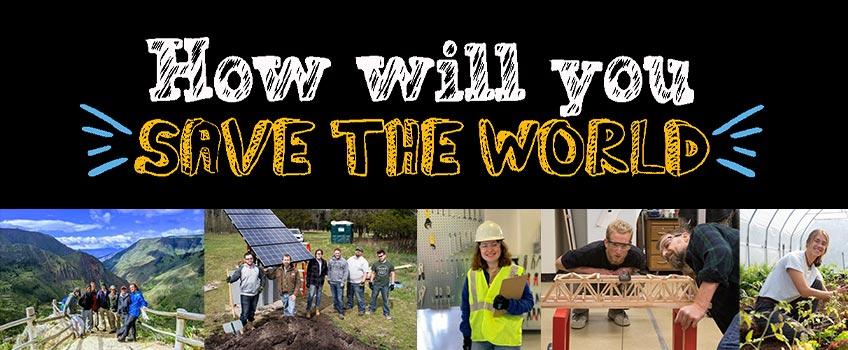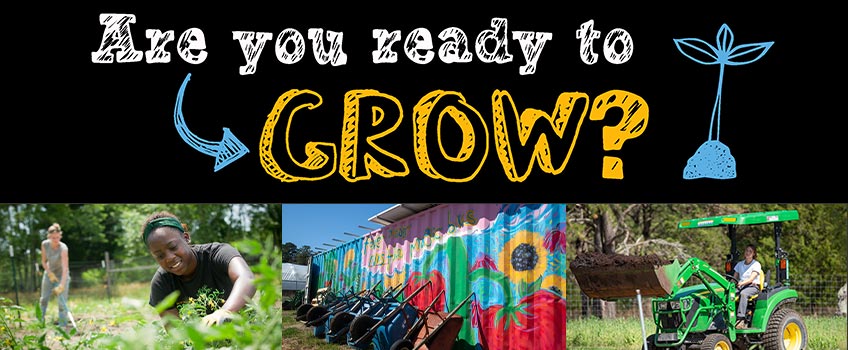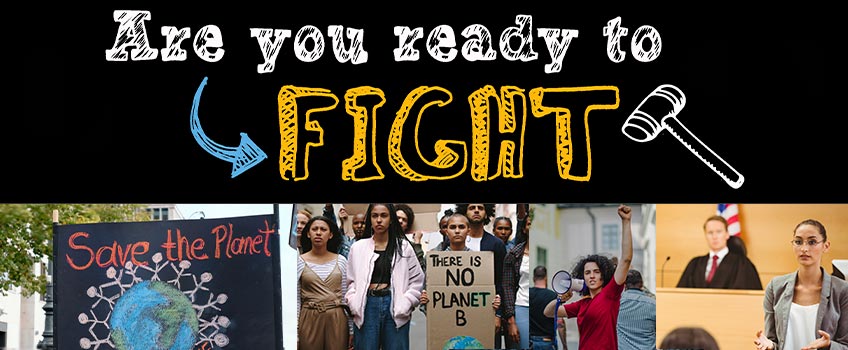Sustainability
Sustainability offers a broad education in science, technology, policy, economics, and ethics, while also providing focused expertise and hands-on training in a career field.
Sustainability describes our efforts to redefine the way we do things like generate
and use energy, manufacture products, grow and process food, build our communities,
and manage our resources, with the aim of bringing the impacts of our actions in balance
with the natural world. The goal is to ensure the health, fairness, and vibrance of
the current generation, without harming the ability of future generations to meet
their needs and also lead healthy and happy lives. With this aim, the Sustainability
program trains innovators, creative thinkers, resilient activists, and empowered professionals
to lead the way.
Choose a degree in Sustainability and concentrate your studies in:
- Does the challenge of engineering new technological innovations excite you?
- Are you looking to help build stronger communities and protect our future?
- Would you enjoy getting your hands dirty while growing food for your community?

Stockton provided me with a technical background on various renewable energy technologies, sustainable building design, and applied engineering. I apply this technical background on a daily basis as I consult clients, most of which are architects and MEP engineers, on the most sustainable building system designs that are suitable over my range of projects. [..]

B.S. Sustainability, Concentration in Energy, Minor in Mathematics and Physics
Most importantly, I learned how to think systemically in the courses I took as a sustainability major. The extensive research and writing in the program prepared me for all of the opportunities I received after graduating. [..]

B.A. Sustainability, Concentration in Policy and Economy, Minor in Writing
The Sustainability program primed me for doing projects that require research needed by science directors and grant managers. I am also continuing to work for the good of the environment by funding scientific research to improve the Hudson River estuary at my day job. [..]

B.S. Sustainability, Concentration in Sustainable Biosystems, Minor in Environmental Studies
About the Program
Our aim is to empower students to help build a healthier, happier, just and verdant planet by finding better ways to do things and avoid the long-term harm caused by our current course. We face a planet in crisis, an economy in peril, a society in need of healing, and we need problem solvers, with a capacity to see the big picture and the training to make things happen to help us chart a way forward. So, above all, we train innovators, systems thinkers, and problem solvers. With a broad training in science, technology, as well as policy, law and economics, our graduates are equipped to change the world. And with hands-on training and professional experience in their chosen field, they’re ready to hit the ground running after graduation.
FARM:

While every student completes core courses in environmental policy, ecological economics, technology and ecology, every student also chooses a concentration to allow them to develop expertise and gain professional training that employers value.
Curriculum
The study of Sustainability is focused on the sociopolitical, economic, ethical, and scientific efforts that help bring human existence into balance with the natural world. A degree in Sustainability helps prepare students to define a more just, verdant, healthy, and environmentally sound future.
Prospective freshman or transfer students can use the Curriculum & Transfer Equivalency tool below. In addition, the program degree map provides valuable degree information and is a guide to assist in planning academic coursework, but should not substitute academic advisement.
Degree Offerings
The Sustainability program has multiple possible concentrations of study, and every student is required to select a concentration.
Bachelor of Arts in Sustainability with a Concentration in Policy & Economy
Bachelor of Arts in Sustainability with a Concentration in Sustainability Management
Bachelor of Science in Sustainability with a Concentration in Agroecology
Bachelor of Science in Sustainability with Concentration in Energy
Bachelor of Science in Sustainability with a Concentration in Policy
Minor
MinorCertificate
Energy CertificateDegree Works Curriculum & Transfer Equivalency Tool
You can see the curriculum for your area of interest using Degree Works. This service is accessible even if you are not currently a student with Stockton University.
Instructions on How to Use Curriculum Tool
Faculty

Ron S. Hutchison


Maritza Jauregui


Opportunities
Stockton Action Volunteers for the Environment (S.A.V.E.)
Stockton University Environmental Club
Careers
The Sustainability program answers a growing demand by employers for professionals with specialized training in sustainability. As industry and businesses develop a greater interest in their green profile, and as alternative energy and conservation gain prominence, the need for sustainability professionals has grown sharply. This program will help students serve that pressing need. Graduates in Sustainability work across the spectrum, in public agencies, nonprofit organizations, industry, business, public advocacy, education, and many other fields. In addition to the concentration, a certificate in Energy Studies is offered.
Potential Careers
- Climate change analyst
- Public relations specialist
- Renewable energy
- Sustainability consultant
- Policy specialist
- Wildlife ecology
- Energy consultant
- Wildlife veterinarian
- Sustainable agriculture
- Environmental specialist
- Law
- Farming and horticulture
- Environmental health science
- Environmental engineering
- Wildlife Veterinarian
- Ocean engineer
- Sustainability strategist
The Student Career Center is available to guide you through your career development journey - from CV writing, interview prep, or general guidance.
Internships
Opportunities for Sustainability Majors / Minors for business connections, volunteer work, and internships.






